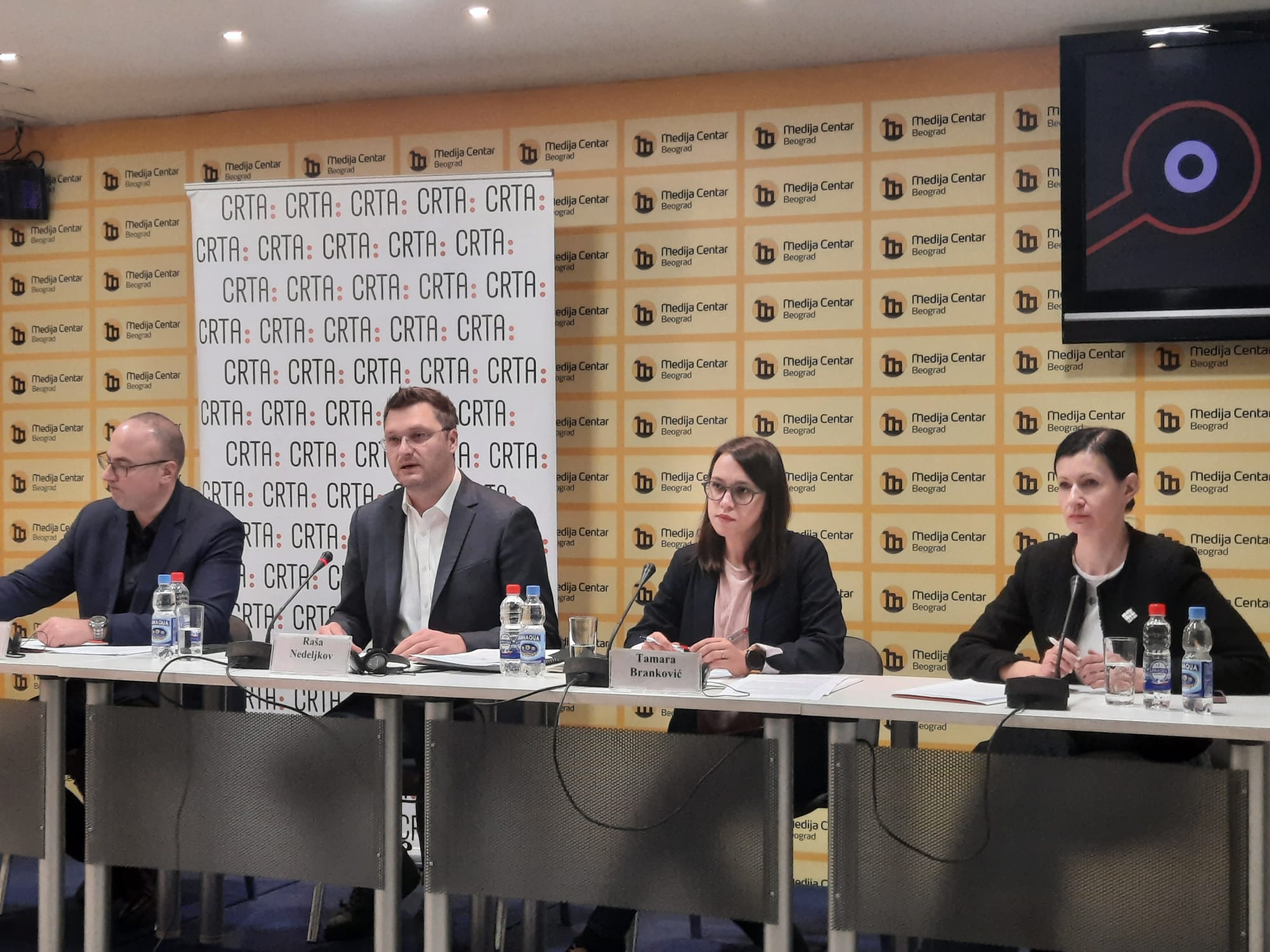The culmination of the campaign is marked by increased pressures on citizens
 Foto: Crta
Foto: Crta
The systematic abuse of institutions, public functions, and the most influential media, which put electoral actors in an unequal position, marked the campaign for the extraordinary parliamentary and Belgrade elections – is one of the most important findings of the “Second Interim Report of Long Term Election Observation” that the CRTA Election Observation Mission presented today in the Media Center in Belgrade.
Disturbing testimonies from citizens about the pressures they are exposed to, well-founded suspicions of falsification of signatures of support for electoral lists, manipulation of the voter list and misuse of citizens’ private data call into question the integrity of the institutions in Serbia.
“The campaign went on and ends in a fog of unanswered questions – why were extraordinary elections called only in one part of the local self-governments, who is and who is not a candidate, which party is participating legitimately, and which party is participating based on forged signatures, who is a public official in the campaign, and who is a party activist, are the institutions active in so far as they act as servants to parties in the campaign and, in the end, how much trust can we have in the voter list, especially in relation to the Belgrade elections”, said Raša Nedeljkov, Head of the CRTA Election Observation Mission.
The public space was marked by inflammatory rhetoric and incitement of intolerance, and several cases of violence, attacks on individuals, and other incidents were recorded in the last weeks before the elections.
“As was the case in the first part of the campaign, and throughout the campaign as well, the public space was dominated by the President of Serbia, even though he is not a candidate in the elections,” said Tamara Branković, Deputy Head of the CRTA Election Observation Mission, stating that Aleksandar Vučić had 14,500 seconds more in television programs with national coverage than all opposition representatives together. In the news programs of the broadcasters above, the ruling majority occupied more than 90 percent of the time allocated for domestic political actors.
CRTA submitted 67 complaints to the relevant oversight bodies for law violations and various irregularities during the campaign, of which 40 were to the Anti-Corruption Agency, 22 to the Regulatory Authority for Electronic Media (REM), and five to the Supervisory Board of the National Assembly.
CRTA was approached by a large number of citizens concerned about the fact that invitations to vote had arrived for people who, as they claim, do not live at these addresses; CRTA invites citizens to continue to get in contact regarding this and any other problems they notice before or during Election Day since the main goal of the CRTA Election Observation Mission is to defend the integrity of the election in the interest of citizens and their voting rights, which is largely threatened by the inertness of the state institutions and the irresponsible actions of those participating in the elections.
The summary can be found here.








